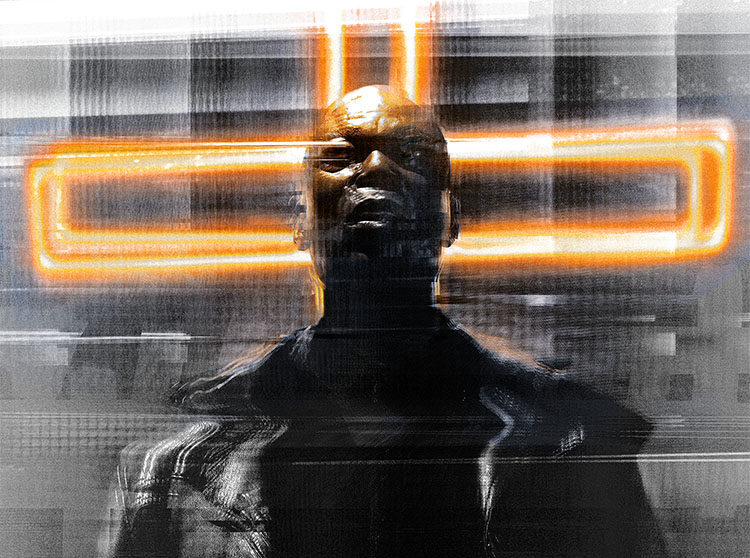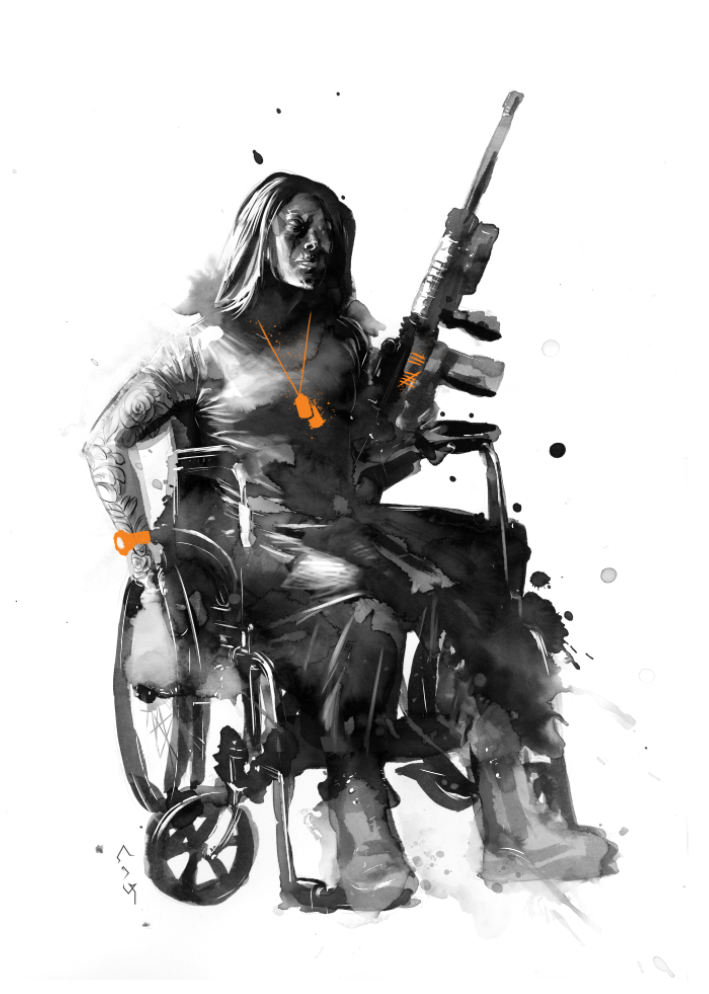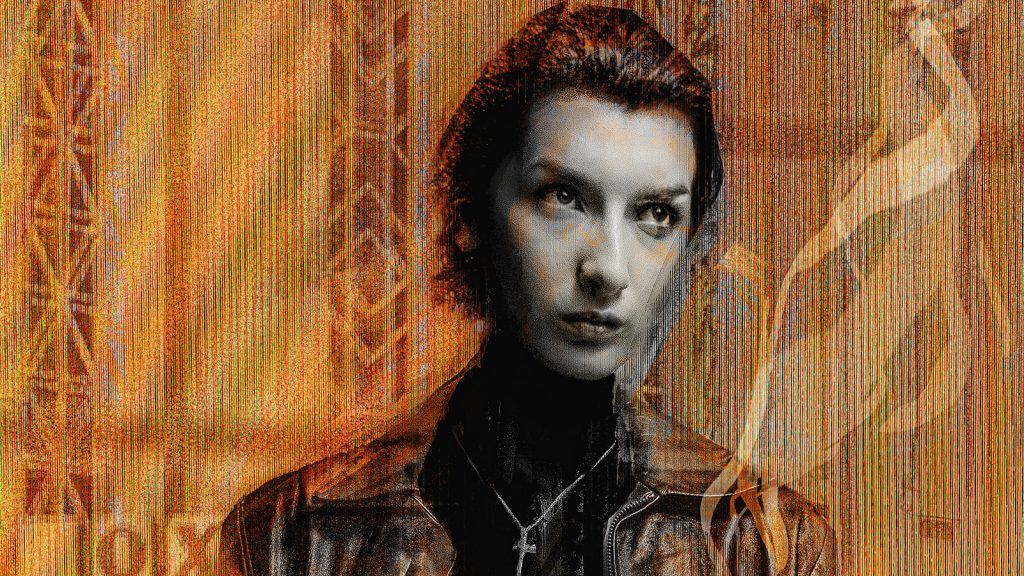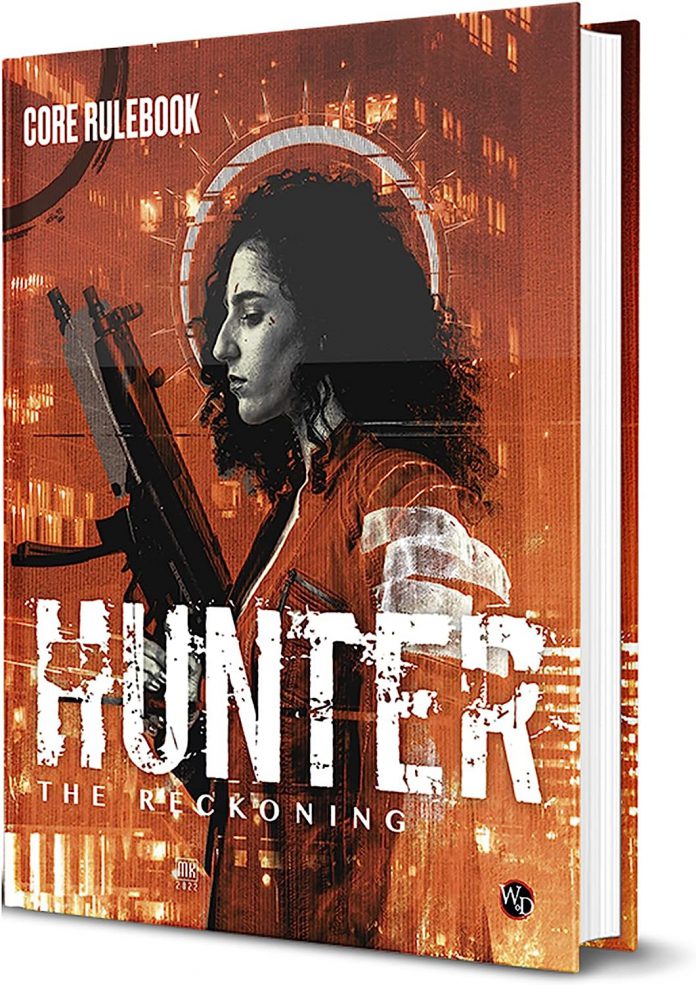If you missed Avery’s intro to the World of Darkness, you’ll want to check that out first! She’s continued her coverage of that world with a primer for Vampire: The Masquerade, and now is here to talk about another RPG in the World of Darkness: Hunter.
The Other Side of the Coin
Hunters are the exact opposite of vampires or werewolves. Their monstrosity isn’t a consequence of any inhuman, cosmic forces dragging them down: A Hunter is a monster because they are human.
Hunters have been around for as long as there have been monsters for them to hunt. In modern times, a resurgence of anti-supernatural task forces– known to vampires as the Second Inquisition— has led to an influx of independent hunting groups. These independent groups, or “cells,” are what the player characters make up. The larger organizations, or “orgs,” act more as secondary antagonists than allies. This includes agencies such as the FBI’s Secret Affairs division or the Vatican’s Society of St. Leopold: Large, powerful organizations that view the Hunters as useful tools to be discarded. The game is gothic-punk after all.
What makes a Hunter a capital-H Hunter?
There are two things that separate a Hunter from an FBI agent or modern day inquisitor: Their Creed and their Drive. Anyone can pick up a weapon and go toe to toe with the supernatural, as long as they have the drive to do so. Hunter is about ordinary people fighting extraordinary things, a concept that demands you ask why. Why would someone risk their life like that? The answer is their Drive.
Drives serve a threefold purpose. They are social cues, and roleplay hooks for the players and game master to use. A Drive is also an important part of character creation, grounding your character in the world. Thirdly, the Drives serve as a way to gain “desperation dice,” a limited pool of dice that can be added to any roll to signify the Hunter’s desperation.

Creeds are similar to classes or playbooks from other games and serve as loose archetypes within each cell for players to follow. There are only five, a far cry from Vampire’s 16, making for a much smoother character creation experience.
What are the Creeds?
Entrepreneurial Hunters are the opportunity seekers of the lot: They’re the ones making and breaking deals, whipping up new inventions of dubious quality, and acting as the face of the cell. They can use their desperation dice when they need to fix something, whether that’s a piece of shoddy gear or an old electrical generator.
Faithful Hunters are the believers. Whether they believe in a god or in the power of humanity, they can wield that faith as a weapon against supernatural forces. They are not necessarily religious: Faith can take many forms. They can use their desperation dice when they are directly facing a supernatural being during a hunt.
Inquisitive Hunters are the investigators. Whether they’re peering at footprints with a magnifying glass or extracting secrets from a bar regular, they are the information gatherers of the cell. They can, of course, always be wrong– part of the cost of doing business. They can use their desperation dice when they need to gather information during a hunt.
Martial Hunters are the fighters. Whether they’re a former soldier armed with top-of-the-line rifles and incendiary grenades or a street punk with a baseball bat and Molotov cocktails, they are usually the ones on the frontlines of a given conflict. They can use their desperation dice when in a fight during a hunt.

Underground Hunters are the criminal element of the cell. They’re the ones who can secure smuggled goods and illegal weapons, and who usually act as the straight-man of the group. They are practical, resourceful, and desperate to survive– at any cost. They can roll desperation dice when they are trying to sneak or tell a convincing lie during a hunt.
So what do they hunt?
Supernatural threats, whatever form they might take. Sadistic, bloodsucking vampires; bestial, monstrous werewolves; inhuman, powerful sorcerors; spectral, haunted ghosts; ethereal, untrustworthy Fae– Hunters hunt what needs hunting. They aren’t bloodthirsty monsters, however: They’re people who feel the consequences of every action they take, for better and worse.
What happens on a hunt?
The core rulebook of Hunter offers a handy pie chart to describe a hunt: Three-quarters of it is gathering information on what the threat is and planning for the hunt. Another three-sixteenths is dedicated to finding out how to kill it and gathering equipment and allies. This means that the rulebook recommends only spending a sixteenth of the time on actually fighting the monster: This is something to keep in mind. A game of Hunter is about the hunt, but the hunt is about the characters. How would an ex-soldier hunt down a werewolf? How would a skeptic hunt a ghost? How would a group of lowly humans take down a vampire?
The hunt is about creative problem-solving and planning, not just fighting.
How do I get started?
Hunter doesn’t have all the same options as Vampire. The best way to pick up Hunter is to play it, and, unfortunately, there’s no value starting pack like Vampire. If you’d like to listen in on a game before jumping in, the World of Darkness YouTube channel has a short actual play series called Hunter’s Garage that can give you a taste of the world. Otherwise, your only real option is to pick up the core rulebook.
Wrap-up:

And that’s Hunter. There’s nowhere near as much content for the game, but it can just as rewarding, if not more so, than the other World of Darkness games if you’re willing to give it a shot. The official website can be found here for additional info about Hunter and the World of Darkness in general. Good luck out there, and don’t let anything too spooky bite/possess/eviscerate you.
Have any questions or feedback? Drop us a note in the comments below or email us at contact@goonhammer.com.


